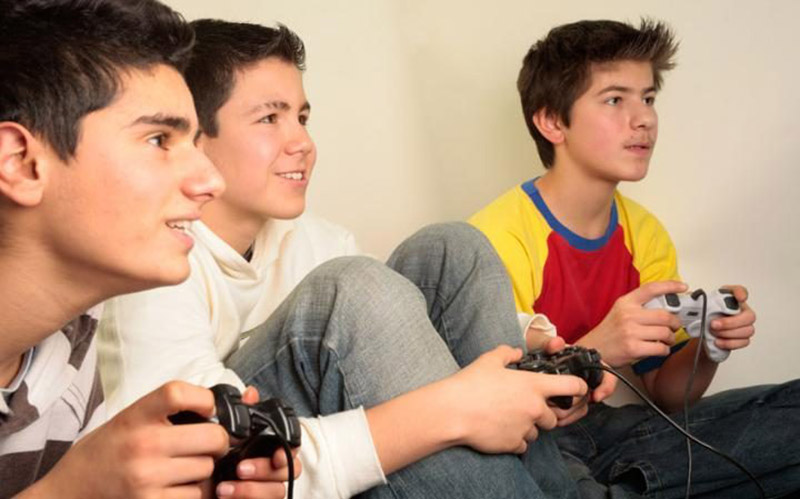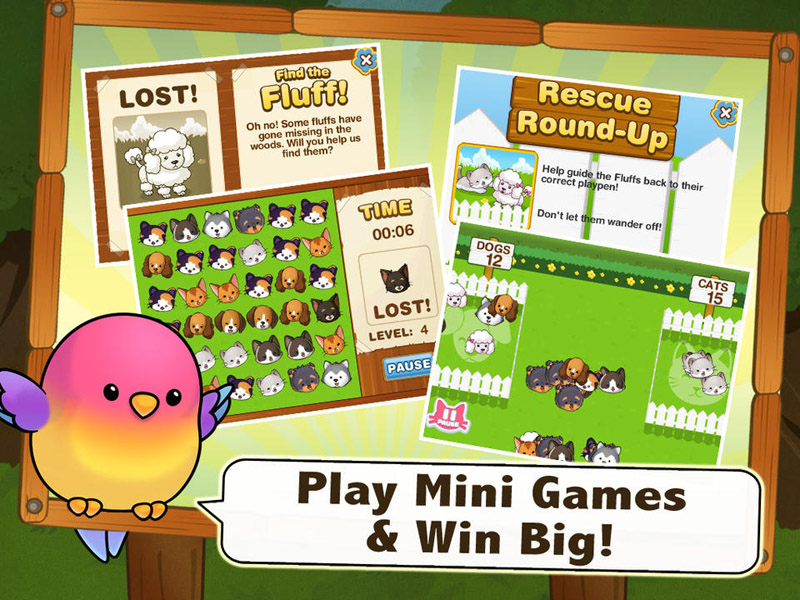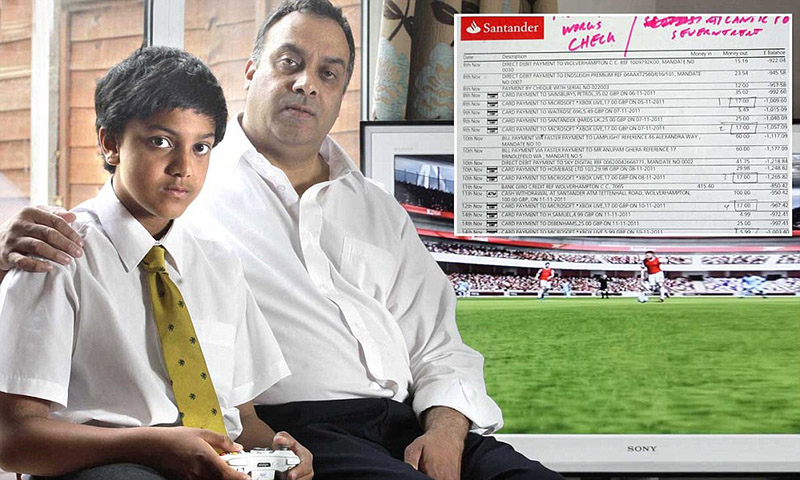Gaming and Gambling on the Central Coast:

Candy Crush, Angry Birds, Farmville, Words with Friends, The Simpsons, Temple Run, The Sims, FIFA Ultimate Team, Bingo Blitz, Slotomania, Texas Holdem, World of Warcraft, League of Legends, Call of Duty, Grand Theft Auto, Clash of Clans… The list is endless. As gaming on the Internet has exploded, a huge range of gambling-like activities have emerged within video games and on smartphone apps and social networking sites. The boundaries between gambling and video-gaming are becoming increasingly blurred, and researchers believe that teenagers who regularly play video games and apps are more likely to develop gambling habits in adulthood.
Central Coast Gambling Help conducted a survey on the gaming and gambling behaviours, experiences and attitudes of parents and young people between the age of 12-25 on the Central Coast of NSW. 87.5% of young people surveyed play video games, 14.6% indicated they play more than 40 hours per week and of these 69% gambled between $10 and $200 per month. This indicated a clear relationship between video game playing and the adoption of gambling once young people are of a legal age to gamble.
Introduction
Simulated gambling is the fastest growing area in gaming, with casino-style games such as Mega slot, Heart of Vegas, TropWorld Casino and Slotomania accounting for four of the top five android gaming apps.[1] These games look and sound just like real gambling, but because no real money is wagered or won and the player is playing with points or virtual coins, simulated gambling is not classified as real gambling.
Simulated gambling apps are readily available to children and adolescents via Facebook, the App Store and Google Play. But unlike films and video games, apps are not rated by an independent ratings board, making it very difficult for parents to identify whether apps feature gambling or not.[2]
Some games, such as Slotomania, Bingo Blitz and Texas Holdem feature wholly simulated gambling activities that are identical to the standard format of real gambling. But many video games include in-game gambling elements. These games offer a "freemium" experience, meaning the game is free but players can fork out real money for extended features, bonus levels and more fake coins to play with.
In Fluff Friends Rescue, for example, players can build and run their very own pet rescue. In-game they can clean, heal, and feed adorable pets and choose from a never-ending selection of playpens, activities, and decorations. Much like other freemium games the idea behind Fluff Friends Rescue is to earn credits, buy and build better facilities to help earn more credits, and then spend those credits to access more advanced structures, etc...

Players can buy food, decorations, habitats, etc. with "munny" a type of virtual currency earned through buying credit with real cash (10 Gold for $1.00) or through various activities such as pet racing. Pet racing costs 1 credit per race and winnings can be up to 4,000 credits. While there is no money changing hands, young children are learning the mechanics, principles and excitement of gambling.[3]
Some free-to-purchase apps aggressively encourage in-app purchases, constantly prompting the player to spend money. On the face of it, Farmville appears to be a fairly innocuous game but there are similarities between the playing of the game and gambling. In March 2010, the British press reported the case of a 12 year old boy who emptied his own savings account of £288 playing Farmville and then spent £625 on his mother's credit card without his parents' knowledge.[4] The family was forced to pay the money and the company who created the game simply advised the boy's parents to use password protection.
Even games that don't feature in-app purchases or simulated gambling often have advertisements that link to simulated gambling websites and games. The University of Adelaide's Dr Daniel King surveyed 1,200 Australian teenagers and found that one-in-10 had played gambling applications on Facebook and one-in-20 had played gambling apps on smartphones.[5] About 40 per cent of teenagers who played online or digital gambling games reported a future intention to gamble with money.
Much like other social games including Candy Crush, Words with Friends or Angry Birds, simulated gambling games increase their reach via the user's own social networks, as they constantly ask the player to invite their contacts to play. Simulated gambling, advertisements, in-app purchases and invites to play mean that young people are bombarded with pressures to play.
However, the potential risks of young people engaging in simulated gambling include:
- Greater familiarity with gambling and acceptance of gambling as a 'normal' entertainment activity;
- The development of gambling strategies and the ability to practice these strategies without need of money
- The development of positive gambling beliefs and thoughts of 'winning big' associated with gambling;
- Exposure to the excitement of gambling wins, including bonuses and jackpots;
- False expectations about how gambling operates and an inflated sense of its profitability.[6]
It seems these days it is just one step from playing simulated gambling games to gambling online. In theory, gambling websites should have stringent age-verification procedures in place to prevent underage people from gambling online. These include asking for name, date of birth, address and payment details, or in some instances passport or identity card numbers. However some young people deliberately set out to work around the verification processes, whether lying about their age or providing false personal information, and some gambling sites are not so stringent in their verification approaches, meaning that young people can fairly quickly and easily get online if they are so inclined.
Factors that contribute to a young person gambling include the presence of a gambling subculture, peer pressure and parental modelling, as well as early big wins leading to confidence or misplaced beliefs about the likelihood of winning.
Given the growing concern over young people being so heavily exposed to gambling and simulated gambling games, and the potential for these games to groom young people to gamble as adults, Central Coast Gambling Help conducted a survey of young people and their parents living in the Gosford and Wyong LGAs to determine local behaviours and attitudes towards gaming and gambling.
Click on the link to read the full report: Gaming and Gambling on the Central Coast: a survey of young people and parents.
Discussion:
The survey findings were consistent with research that shows that 3-4% of young people have problems with gambling.[7] The survey found that 3% of young people had lost more than $200 in the past month which is a significant amount given that all young people surveyed were students. Results were also consistent with research that shows that most gambling by young people is on more benign (though still illegal) types of gambling, such as scratchies (44%), lotteries (33%) or friendly card games. Despite the apparently strict barriers around under age gambling, young people under the age of 18 reported gambling on the pokies (4%), betting on sports (7%) and wagering on horses (5%).
While only 7% of young people on the Central Coast indicated that they gamble online 19% of those surveyed mentioned playing simulated gambling games such as Slotomania, Slots and Zenga Poker. Studies show that teens who play fake gambling-style games on phones and other devices are up to three times more likely to gamble with real money.[8]
It is no longer necessary to visit a licensed gambling venue in order for young people to gamble; individuals are able to connect to Internet casinos anywhere in the world using a personal computer, tablet or smartphone. The Interactive Gambling Act of 2001? (IGA) prohibits Australian gambling operators from providing or advertising 'real-money online interactive gambling services' to Australian citizens. However the IGA does not prohibit individuals from placing bets via the Internet, and many foreign operators offer their services to Aussie players.
In order to gamble online you must be 18 years old or over. However a study carried out in 2014 showed that out of 37 online gambling sites, only seven stopped a 16 year old from registering with them.[9] One problem is that under 18s can own a debit card, and these can be used to register online accounts. Some operators also accept prepaid cards where an individual purchases a pre-paid voucher or card for a fixed amount and uses that card to make a deposit. Winnings are then credited to the card which circumvents the checks and balances of using a credit card or bank account. Children and teenagers have also been known to fraudulently use their parents' credit card as payment for in-app purchases and gambling debts.[10] For example one counsellor from Central Coast Gambling Help recently counselled a 16 year old high school student who gambled $8,000 on online poker machines using his dad's credit card.

The majority of young people in this survey had access to their own debit or credit card, 22% had access to a family credit card and 16% of young people had access to a prepaid card. This demonstrates that young people on the Central Coast have easy access to online accounts. Fortunately parents and teenagers on the Central Coast seem fairly well informed. The majority of parents surveyed monitor their children's use of devices and the hours they play, while the majority of teens surveyed do not gamble and of those that do, most gamble less than $10 a month.
The survey found a clear link between hours spent gaming and gambling behaviours. The more hours playing games and the more money spent on in app purchases the more likely the young person was to gamble. For example a 21 year old male indicated that he spends more than 40 hours per week playing video games, spends over $100 a month on in-app purchases, gambles on all formats mentioned and loses over $200 per month. Of those who indicated that they spend over 11 hours playing video games and apps, 69% also gambled, the remaining 31% were all under 18 but had liberal attitudes towards gambling.
Studies have shown that under-age gambling is often undertaken with parental knowledge, or with parents being unconcerned that their children are gambling. Gambling is generally viewed as a social pastime or leisure activity and in many cases parents are likely to have introduced their children to gambling. The survey found that a surprising number of parents do gamble with their school aged children: Card games 23%, Personal skill games 34%, Betting on sports 26%, Lottery (such as Lotto, Powerball) 37%, Scratchies 47%, Dice games 28%, Gaming machines/Pokies 9%, Horse racing 22%, Online (internet) gambling 6%, Bingo or Keno 22%, Personal challenges (like a dare) 28%, Computer gambling games/apps for money 16%.
Attitudes towards gambling were fairly consistent between parents and young people. The majority of parents and young people disagreed that gambling was an easy way to make money while 10% of parents and 6% of young people agreed that gambling was an easy way to make money. Most respondents agreed that gambling can lead to criminal behaviour. There was a fairly even spread of opinions around the statement 'gambling can be a good way to relieve boredom' but the majority of respondents disagreed. Similarly most people agreed that gambling can negatively impact on school performance. Both parents and young people strongly disagreed with the statement 'there's nothing wrong with teens gambling occasionally. " Interestingly most young people were neutral about the statement "Gambling can be a fun way to spend time with friends" while most parents agreed with the statement. Most young people and parents agreed that "Gambling can negatively impact friendships."
14% of young people and 10% of parents disagreed that simulated games can lead to gambling problems. Most people strongly disagreed with the statement "I click on the links in games that lead to simulated gambling games' however 12.8% of young people and 13% of parents agreed that they click on links to simulated gambling games.
63% of parents and 18% of young people agreed that "it is hard to know the difference between gaming and gambling." This indicates a need for more information to be available to families of the Central Coast. When faced with a problem with gambling most young people would seek help from family and friends, while most parents would go online.
Conclusion:
Young people and families have to deal with so many issues these days including mental health, bullying, eating disorders, family violence, homelessness etc. that gambling often comes in at the bottom of the list. Most people gamble responsibly but when they don't the repercussions can be devastating. The blurring of the lines between gaming and gambling is of great concern as it has vastly increased the presence of gambling in the lives of young people, whether it's through advertising, media coverage, branding or online games.
Limiting young people's internet use can lessen exposure to gambling-like features in the online environment. Parents can also keep their networked computers in the living room or family areas of the home, where internet use can be monitored. Families might also consider blocking gambling sites on their digital devices. It can still be hard to monitor a young person's online activity so having regular, relaxed and respectful conversations about online behaviour is the best way to build resilience and help young people to make good decisions about gambling.
__________________________________________________________________________
Please see the survey report for a list of all references.